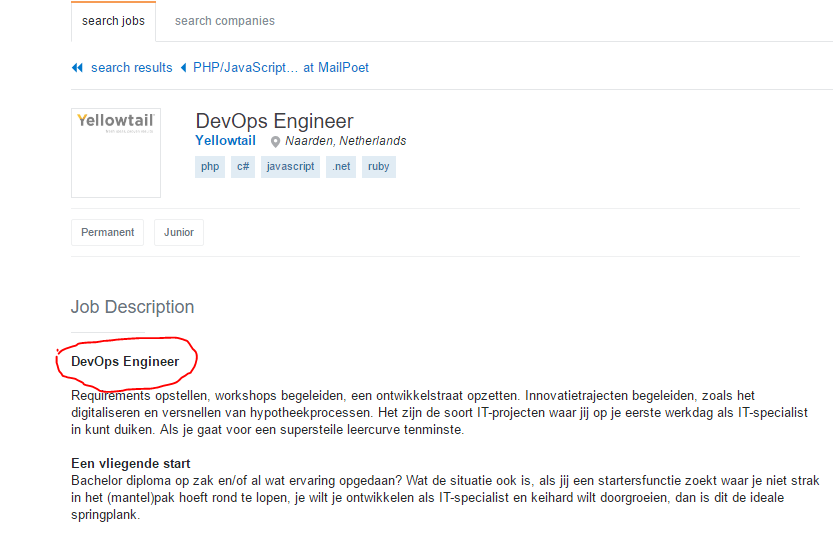Good developers should fit rule 11 of the Joel Test:
Do new candidates write code during their interview?
However, I know little to nothing about Docker containers, how to configure Jenkins or AWS, etc. What would be a good way to test if the person who applies can manage such tasks?
Sub-questions: I believe that a good devops employee can configure the build chain once and it should work from then on out. Can I then also expect him or her to be a developer in the company (DEVops)? As DevOps is a relatively "new" job, is it maybe better for small companies to share a devops employee or hire him or her as a freelancer whenever you need him or her?
 My confusion about the term originates from job offers like this, even here on stackexchange (= link where above screenprint was taken from).
My confusion about the term originates from job offers like this, even here on stackexchange (= link where above screenprint was taken from).
I found this helpful, but possible opinionated article you might want to read if you stumble on this question: https://hackernoon.com/devoops-some-common-anti-patterns-1850ac2f5074